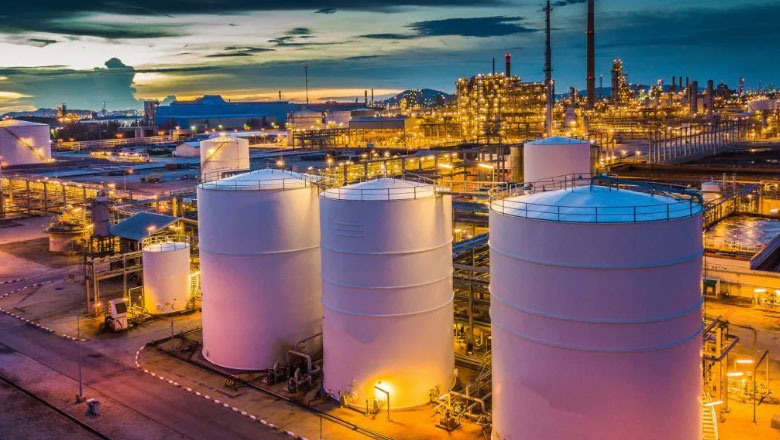The Role of the Malaysian Industrial Development Authority in Green Industrial Development
The Malaysian Industrial Development Authority (MIDA) plays a pivotal role in the development of green industries in Malaysia. As a governmental agency, MIDA is responsible for formulating policies and strategies to foster industrial growth in an environmentally sustainable manner. Through its initiatives, MIDA aims to integrate green practices across industries, encouraging the adoption of green technologies, promoting sustainable manufacturing processes, and supporting industries in reducing their carbon footprints. This article will explore how MIDA contributes to the growth of green industries, its strategies, and the impact of its actions on Malaysia’s economic and environmental goals.
Overview of MIDA’s Role in Green Industrial Development
MIDA, as the main agency responsible for promoting industrial development in Malaysia, has increasingly focused on green industrial initiatives. Its role in advancing green industries is multifaceted and crucial for ensuring that the country’s industrial growth is both economically viable and environmentally responsible. By providing incentives, facilitating the adoption of green technologies, and offering guidance to industries, MIDA helps companies align their operations with global sustainability standards.
MIDA’s involvement in green industrial development aligns with Malaysia’s commitment to achieving a sustainable future. With industrialization being a significant contributor to the nation’s economy, the agency plays a central role in ensuring that this growth does not come at the expense of environmental integrity. In this regard, MIDA has been proactive in promoting green technologies, renewable energy, and sustainable manufacturing practices within Malaysia’s industrial sectors.
Strategic Initiatives by MIDA in Green Industrial Development
To foster green industrial development, MIDA has launched various strategic initiatives. These initiatives aim to create an ecosystem where green technologies and sustainable practices are deeply embedded in industrial operations. Below are the key strategies that MIDA has implemented:
1. Incentives for Green Technology Adoption
One of the most significant ways MIDA supports green industrial development is by offering financial incentives to companies that adopt green technologies. These incentives are aimed at reducing the initial investment burden on industries, making it more feasible for them to transition to sustainable practices. For example, MIDA provides grants, tax exemptions, and subsidies for businesses investing in energy-efficient technologies, waste management systems, and renewable energy solutions. This approach encourages industries to embrace innovation and invest in technologies that can reduce their environmental impact.
2. Promotion of Sustainable Manufacturing Practices
MIDA promotes sustainable manufacturing practices by working closely with industries to help them incorporate environmentally friendly methods into their production processes. This includes advising companies on how to reduce energy consumption, minimize waste, and improve resource efficiency. Additionally, MIDA assists businesses in adopting cleaner technologies, such as the use of renewable energy sources like solar, wind, and biomass. These practices not only reduce the environmental impact of industrial operations but also contribute to long-term cost savings for companies.
3. Collaboration with Green Certification Bodies
In its efforts to promote green industrial development, MIDA collaborates with various certification bodies that specialize in environmental standards and sustainability. These collaborations ensure that Malaysian industries adhere to global environmental standards and earn certifications that validate their green credentials. By working with organizations such as the Malaysian Green Technology and Climate Change Corporation (MGTC) and international entities, MIDA helps businesses obtain certifications like ISO 14001 (Environmental Management Systems) and the Green Building Index (GBI). These certifications not only enhance the reputation of companies but also open doors to new markets that demand environmentally sustainable products and services.
4. Supporting Research and Development in Green Technologies
Research and development (R&D) in green technologies is another area where MIDA plays a vital role. The agency provides support for R&D initiatives aimed at developing new sustainable technologies that can revolutionize industrial processes. This support includes funding for research projects, collaboration with academic institutions, and facilitating partnerships between private companies and research entities. MIDA’s R&D support ensures that Malaysia stays at the forefront of green innovation and can develop cutting-edge technologies that contribute to environmental sustainability.
5. Facilitating the Transition to Renewable Energy
Renewable energy is an essential aspect of green industrial development, and MIDA plays a key role in facilitating the transition to renewable energy sources. By offering incentives for the adoption of solar, wind, and other renewable energy technologies, MIDA encourages industries to reduce their reliance on fossil fuels. The agency also collaborates with energy providers to ensure that industries have access to affordable and reliable renewable energy solutions. This transition is crucial for reducing Malaysia’s carbon emissions and achieving its climate goals.
Impact of MIDA’s Efforts on Malaysia’s Green Economy
MIDA’s efforts in promoting green industrial development have had a significant impact on Malaysia’s economy and its commitment to sustainability. The adoption of green technologies and sustainable practices by industries has not only reduced environmental harm but has also enhanced the competitiveness of Malaysian industries in global markets. By aligning with global sustainability standards, Malaysian industries can attract foreign investment and access new business opportunities that are focused on sustainability.
Moreover, MIDA’s green initiatives contribute to the creation of green jobs, fostering a workforce that is skilled in sustainable technologies and practices. This is particularly important as the world transitions to a green economy, where there is an increasing demand for professionals with expertise in renewable energy, environmental management, and green technology.
Challenges and Future Directions
Despite the significant strides made by MIDA in advancing green industrial development, challenges remain. The initial cost of adopting green technologies can still be a barrier for some industries, particularly small and medium-sized enterprises (SMEs). Additionally, there is a need for greater awareness and education on the benefits of green practices across all sectors of the economy.
Looking ahead, MIDA will continue to play a crucial role in overcoming these challenges by providing further incentives, increasing public awareness, and promoting greater collaboration between industries, government, and academic institutions. The agency will also work towards enhancing Malaysia’s green innovation capacity, ensuring that the nation remains competitive in the global green economy.
Conclusion
In conclusion, the Malaysian Industrial Development Authority (MIDA) plays a vital role in driving the country’s green industrial development. Through strategic initiatives, incentives, and collaborations with industry stakeholders, MIDA has fostered the adoption of sustainable practices and green technologies across various sectors. These efforts contribute not only to the environmental sustainability of Malaysia but also to its economic growth by enhancing industrial competitiveness and creating green jobs. As Malaysia moves towards a more sustainable future, MIDA will continue to be a key driver in ensuring that green industrial development remains at the forefront of national policy and strategy.









